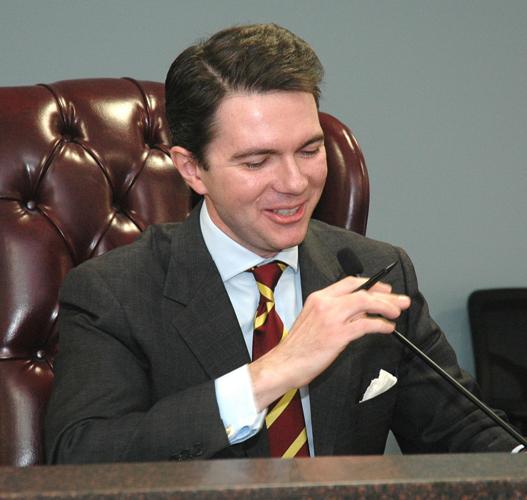Lots of interesting news has been happening in our local political world, though I was interrupted a bit by Thanksgiving in reporting it. Here are a few morsels, some of them leftovers.
I hope you’ll find them tasty anyway.
Dems start reconciliation
In late September, the new chair of the Pima County Democratic Party, Cheryl Cage, suddenly resigned.
Her resignation laid bare some divisions and frustrations among local Dems — the sort we’ve become more accustomed to seeing among Arizona Republicans. Some thought Cage had misunderstood her role in the party and its priorities; others thought she was mistreated by the young staffers and volunteers who do a lot of the party’s day-to-day work.
As I reported Oct. 2, it shocked most everyone when, after a confrontational Sept. 24 meeting, she chose to step down.
Last month, the party took a first step toward reconciliation by electing a new chair, Jo Holt of Oro Valley. She was the Democratic chair in Legislative District 11 and is a two-time losing candidate for the Legislature in that northwest-side district.
When I asked Holt on Tuesday for her assessment of the problems in the party structure, she said, “These problems are initially started by a lack of communication. It’s easy to talk about open communication, but it takes a lot of work.”
She plans on having four or five small meetings with leaders in each local legislative district to get a handle on the situation.
“As the new county chair, I need to know and want to know how our precinct committee people feel about everything,” she said.
Clearly there were bad feelings after Cage’s resignation. In October, 43 precinct committeepersons (as they called themselves) signed a petition to the executive board demanding to know more about the circumstances of her stepping down.
In November, Cage sent a “report” to the executive committee and precinct committee people detailing her thoughts on what happened and what should change. Among other suggestions, she said that interim executive director Heath Butrum should be fired and two members of the board, Pat Burns and Matt Kopec, should remove themselves for two years.
Don Jorgensen, the former chair of the party and one of Cage’s top supporters, told me he thinks all five of the other party officers should step down, too.
“I think we’re halfway to resolving the problems that were created. Electing Jo Holt was a good move on the part of the precinct committee people. She’ll do a very good job.”
Corp Comm texts
A pair of sentences from Wednesday’s column raised the ire of Corporation Commissioner Bob Stump and the staff of the commission. They were these:
“Stump and the commission originally denied these texts still existed. Then it turned out they did, by the thousands.”
They objected to the implication that they were lying about whether text messages from Stump’s phone, the subject of a public-records request and lawsuit, could be found. They never said or intended to say that the messages were irretrievable, just that they were deleted and therefore unavailable to the commission, Stump and corp-comm spokesman Angie Holdsworth told me.
True enough, but probably only relevant to those who are deeply involved in this story. The point is that they thought and said the texts were deleted and therefore gone. But it turned out they could be retrieved via computer forensics.
McSally and extremism
U.S. Rep. Martha McSally is in the right place at the right time in Congress, serving on the Committee on Homeland Security and able to dig into the timely issue of terrorism here at home.
“It could have happened here,” McSally said in a Republican press conference on Nov. 17, after the terrorist attacks in Paris.
Then, Wednesday in San Bernardino, maybe it did. That day, she criticized the administration’s approach to combating the Islamic State group.
“They are acting at the speed of broadband while we are acting at the speed of bureaucracy,” she said. “We have 10,000 IRS agents making sure that you don’t take an improper charity deduction and less than two-dozen people focused on countering violent extremism at home.”
That was a nice sound bite, but was wildly misleading. Immediately after McSally’s team posted her comments online, I asked what she was referring to with her “two-dozen people” comment. Her spokesman, Patrick Ptak, responded via email:
”Rep. McSally is referring to employees at DHS whose job it is to combat homegrown extremism, mostly online, here in the U.S. The information comes from a number of Homeland Security Committee hearings and briefings. The figure does not include so much threat detection and prevention efforts, but rather combating ISIS’ ideology, which aims to inspire homegrown attacks.”
I wasn’t the only one who noticed. Politifact looked into her statement and called it “mostly false.”
I checked into the number of people we have working in counterterrorism and found these figures: In fiscal year 2014, the FBI had about 7,000 full-time employees working in counterterrorism. The FBI also operates 104 counter-terrorism task forces nationwide, which have around 4,000 members, some of them from FBI, others from other agencies.
McSally’s campaign reprised her statement in a fundraising email Thursday, but it didn’t include the “two-dozen” line.
Kafkaesque no more
In my Nov. 1 column, I detailed Tucson zoning examiner Linus Kafka’s decision to resign because of unspecified “political interference.”
Kafka declined to elaborate on what he meant by interference, but I was among several people who wondered whether it wasn’t the hostile process involving the Valley of the Moon’s request to be zoned as a historic landmark. In that case, Councilwoman Karin Uhlich brought the issue to the City Council before Kafka was done with the rezoning process.
His report to the council made it clear that he thought by truncating his ability to hear out the case, the zoning-examiner process was being undermined.
At the Nov. 4 council meeting, Uhlich and Kafka showed they had problems with each other, first when they discussed the rezoning of Broadway Village.
“I think every time I see you between now and January I’m going to ask the same question,” said Uhlich, who represents Ward 3. “Were you subjected to any undue influence outside the appropriate public process in order to prepare your report on this matter?”
“Well,” Kafka said. “I could say this is a Ward 6 case. I did not have any outside interference in this case.” In other words, if it had been a Ward 3 case, maybe he would have.







